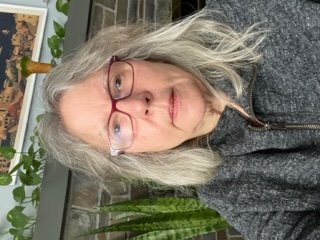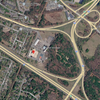Mckeon says, nurturing nature with native plants is something everyone can do
GUILDERLAND — Joan Mckeon had an awakening as she mowed her lawn — a job she hated.
“It smelled bad, it was noisy, and the little creatures would run for their lives,” she says in this week’s Enterprise podcast.
The less lawn she mowed, the more native plants grew up. “They would bloom and then they’d be covered with bees,” she said.
Similarly, plants in her garden beds had been purchased at a garden center and came from other parts of the world.
“In between them would be all these pesky little things that would pop up, and they would be doing so much better than what I had planted,” Mckeon said. She came to realize she was pulling out native plants to make room for alien plants.
Mckeon then learned about native plants that she could eat or use medicinally.
When she moved from her longtime home in Greenville to Guilderland last March, Mckeon joined the Guilderland Garden Club to find some like-minded people to help her spread the word about native gardening and the destructive nature of lawns.
In May, Mckeon will be giving a presentation to the garden club about native plants.
Mckeon has a picture of herself as a first-grader holding a handful of radishes. “That was my first gardening attempt,” she said.
But for most of her years, she said, she was “a gardener in repose.”
Her father was in the Navy and her family moved every two years so putting down roots, either literally or figuratively, was impossible. “I was always just coming and going,” she said.
An artist, Mckeon created photo collages including a lot of the plants from her garden.
Mckeon says her Guilderland yard has been a learning experience for her. She chose it for the sun and was looking forward to growing sun-loving plants that attract pollinators. “Most flowers aren’t really producing nectar unless they’re in full sun,” she said.
The yards in her new neighborhood are mostly covered in lawns, Mckeon said.
She cites Douglas Tallamy, author of “Nature’s Best Hope,” saying, “His idea is that, if everybody that had a lawn could even take a portion of that lawn and put it back into native plants, it would be a home-grown national park that would be bigger than all of the national parks put together.”
Mckeon asserts, “Everybody can make a contribution to wildlife. And, to me, it’s so much fun.”
She has taken tours to see wild columbine hanging from a cliff over the Mohawk River or to see a mass of dogtooth violets — “almost a field of them” — thriving in the shade.
While some local garden centers carry native plants, Mckeon relies on lists, including one front the state’s Department of Environmental Conservation and another from the Xerces Society, geared for pollinators in different areas of the country.
“If you want to get a certain kind of local butterfly in your yard, you can get the host plant,” says Mckeon.
She stresses, “There’s a need for everyone to do this because of the extinction of insects and birds.”
Mckeon also says that by making space for nature in your own yard you can help quell climate change. “The idea of the new esthetic, changing your idea about what a good-looking yard is and thinking of it as a place for nature,” she says, can make a difference.
Mckeon urges “changing your mind about what a yard should be, what function it should serve, and what it should look like. And that’s a big one ….
“People say, ‘Well, you know, the climate is changing. It’s all so big and out of my hands and what can I do?’ Well, this is something everybody can do.” The flowers and the bugs and the butterflies will “all come back,” she says, “if you just do the right thing.”



